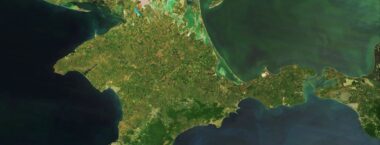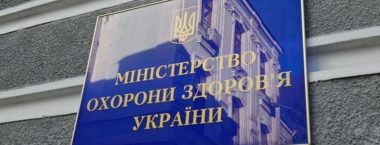A human rights-based approach is a cornerstone of Ukrainian Helsinki Human Rights Union’s activity. In this respect we continuously monitor domestic legislative developments to ensure its consistency with human rights standards, enshrined in international instruments. Today we are reporting about our analytical findings as regards the Law of Ukraine № 2469-19 on National Security adopted on June 21, 2018.
General information:
The Law determines the fundamentals and principles of national security and defense, as well as the principles of the state policy in this area, in particular:
- fundamental national interests of Ukraine have been defined (namely comprehensive integration into the European space, as well as membership in the European Union and NATO);
- the hierarchy in the security and defense sector is established and strategic planning areas are defined;
- budget expenditure on the security and defense sector has been decided; and composition of the Armed Forces of Ukraine determined;
- the Law also provides for public oversight in this area.
Most provisions of the Law entered into force on July 8, 2018, while coming into effect of other provisions, specifically those concerning staff appointments (e.g. the Minister of Defense and his deputies), has been postponed until a later date. Adoption of this Law invalidated a number of other laws: the 2003 Law of Ukraine On Fundamentals of National Security of Ukraine, the 2003 Law of Ukraine On Democratic Public Oversight over Military Organization and Law Enforcement Bodies of the State, and the 2005 Law of Ukraine On Organization of Defense Planning.
Positive aspects:
- Affirming protection of person and citizen as the goal of the state policy in the area of national security and defense.
- Observance of international law and fulfillment of Ukraine’s international commitments is named as the main principle of the security and defense sector.
- Ensuring the rule of law as one of the tasks singled out in the context of the “democratic public oversight” concept as a mechanism for overseeing the activities of the security and defense sector is definitely a positive thing for the protection of human rights.
- In accordance with part 1, Art. 12 of the Law, the security and defense sector is considered as a set of interconnected elements, specifically: security forces, defense forces; military-industrial complex; citizens and civil associations that voluntarily participate in the process of ensuring national security.
Controversial points and possible threats:
- Instead of introducing the commonly used classification of armed conflicts (international armed conflict and non-international armed conflict), the law employs a different approach. Thus, war and armed conflict are named as forms of a military conflict. An armed conflict can be an international armed conflict or an internal armed conflict. This could cause problems later with the law’s implementation, since these terms play a key role in the process.
- No clear distinction is made between the terms “national interests of Ukraine” and “national values of Ukraine”, including “fundamental national interests”, which could thus have different interpretations and, consequently, negatively affect the implementation of other provisions of the Law.
- While the issue of authority of the public bodies of the Autonomous Republic of Crimea in the field of democratic public oversight over the security and defense sector has been addressed, the law does not mention the occupation of the Crimean peninsula, or even the term “occupation” in general. Also, it would be appropriate to consider de-occupation process in the text of the law.
- The Law makes only a nominal distinction between the security forces and the defense forces of Ukraine, since, in accordance with paragraphs 17-18, part 1, Art. 1, law enforcement and intelligence bodies are included in both categories.
- Definition of the national guard as a military unit with law enforcement functions, tasked, among other things, with maintaining public order (including during peaceful gatherings), raises doubts, since the Constitution of Ukraine prohibits use of the military for restricting the rights and freedoms of citizens.
- Citizens and civil associations that voluntarily participate in the ensuring of national security of Ukraine are considered an integral part of the security and defense sector. At the same time, the Law fails to regulate a number of relevant aspects, such as legal status, authority and responsibility.
- The terms “military security”, “state security” and “national security” given in the Law do not conform to either Art. 3 of the Constitution, where a person’s life, health, inviolability and security are named as the highest social values, or part 1, Art. 3 of the current Law.
- The principles of democratic public oversight established in part 2, Art. 4 of the Law do not provide for such principles as the need to keep the oversight free of politics and ideology; accessibility of information on the sector’s activities to society; and obligation of public officials to provide timely, complete and reliable information in response to inquiries.
- The provisions of Art. 5 of the Law that refer to Art. 106-107 of the Constitution relate to the exercise by the President of Ukraine of control over the security and defense sector both directly and through the National Security and Defense Council headed by him, which expands the President’s powers, in violation of the Constitution. The same applies to the provisions of Art. 13 of the Law.
- It is proposed to create a Parliamentary Committee for Oversight of Law Enforcement and Intelligence agencies, but there is no compelling reason for its creation and it is unclear why these functions cannot be performed by the existing Parliamentary Committee on National Security and Defense.
- In accordance with Art. 10 of the Law, public oversight does not provide for the possibility for civil associations to inspect the conditions of service, the life and everyday conditions of personnel in military units, where the risk of human rights violations is traditionally high.
- Unreasonably selective approach when establishing requirements for the disclosure of strategic documents for long-term planning in the area of national security and defense, which leaves only the Strategy of National Security of Ukraine (part 4, Art. 26) and the Strategy of Public Security and Civil Protection of Ukraine (part 4, Art. 29).
General conclusion:
The Law is generally acceptable, but certain its provisions need to be reconciled with other legislative acts (namely with the Constitution of Ukraine) and, therefore, the civil society should monitor its implementation in the future.
Ukrainian Helsinki Human Rights Union




